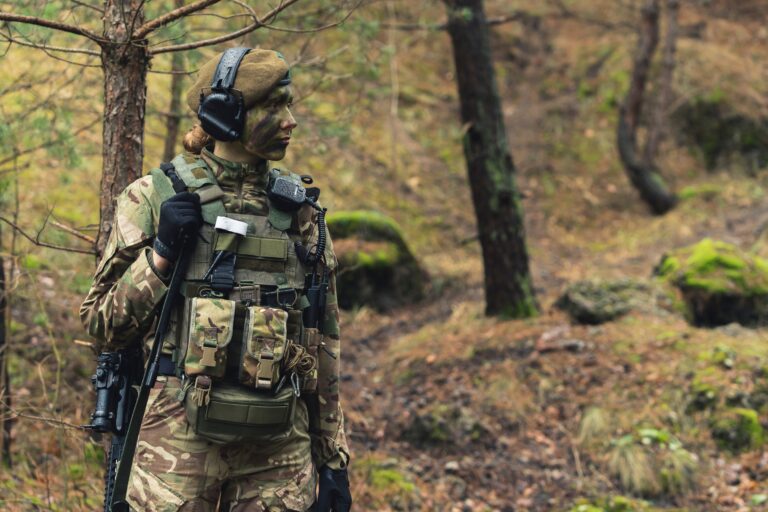How a man’s best friend can help those suffering from PTSD
As a Solicitor in the Military department at Bolt Burdon Kemp, I see too often our clients suffering from the crippling effects of Post Traumatic Stress Disorder (PTSD). For those who are not aware, PTSD is an anxiety disorder that may develop after an individual is exposed to one or more traumatic events. Military personnel are often posted on tour to war-stricken areas where they are involved in or witness traumatic events, the memories of which will often stay with them for the rest of their lives.
Typical symptoms of PTSD include:
- Re-living or re-experiencing the traumatic event. The individual often experiences nightmares, intrusive thoughts and flashbacks;
- An avoidance of people, places or conversations which may trigger memories of the traumatic event;
- Emotional numbing, to include detachment and estrangement from others, and being less interested in previously enjoyed activities;
- Symptoms of increased anger, irritability, poor concentration and difficulty sleeping. Individuals will become increasingly anxious and unable to deal with stressful situations as well as they used to.
For some, symptoms can take months or even years to manifest themselves. Once present, these symptoms can sadly leave individuals detached from their former lives and can lead to difficulties in social relationships as well as with occupational functioning and work. This can lead to particular problems for those making the already difficult transition from military to civilian life.
Treatment for PTSD is typically in the form of medication to alleviate the symptoms of depression and anxiety, and also trauma focused therapy either via CBT (Cognitive Behavioural Therapy) or EMDR (Eye Movement Desensitisation & Reprocessing). However, recent studies have shown that animals, in particular dogs, can have great therapeutic benefits for those suffering from PTSD.
The use of therapy animals to treat the disabled, or those who have limited or complete loss of sight or hearing is well known. They can also have great benefits for those diagnosed with autism, in particular children.
However, Animal Assisted Therapy has in more recent years been praised for its treatment of PTSD. The healing process for PTSD is often a prolonged and lonely one, but Animal Assisted Therapy can help towards making that process a little easier.
In the majority of cases, therapy involves pairing PTSD sufferers with dogs, but other animals, including horses and cats, have been shown to produce positive results. But why exactly does this special pairing help with the treatment process? This is why…..
- Having an animal is known to help alleviate many of the symptoms associated with PTSD, including stress and anxiety;
- Having a pet often helps to promote exercise, which is known to help reduce anxiety levels. It also reduces the type of environment which may lend itself to an individual developing depression, for example as a result of spending prolonged periods of time indoors;
- Pets demand care. They require feeding, grooming and exercise. For the traumatised soldier, this shifts the focus away from them and towards their pet and caring for their needs;
- Animals are accepting and non-judgmental. They do not notice a handicap or impairment;
- Dogs in particular can be trained to interact pro-actively with their owner when they exhibit signs of increased stress or anxiety, and help naturally reduce that feeling in their owner. It is believed to be one of the simplest remedies for an anxiety attack;
- They can help re-build all important confidence in their owners, and help traumatised veterans overcome the emotional numbness and withdrawal which often comes with suffering from PTSD;
- Teaching dogs discipline and service commands can often help improve an individual’s patience and communication skills.
The statistics support the success of this slightly non-conventional form of treatment. In one study of the benefits of using dogs as a form of therapy, psychologists noted an 82% reduction in symptoms. In some cases, they also help to reduce the individual’s reliance on medication to alleviate their symptoms.
There is also some evidence that bonding with dogs has biological effects, including elevated levels of the hormone Oxytocin. This helps improve trust, an individual’s ability to interpret facial expressions and the over-coming of paranoia, all problems which PTSD sufferers often experience.
There are a number of charities in the UK which are raising awareness and money to support therapy of this kind for PTSD sufferers, including Bravehound and Hounds for Heroes. It is hoped that now that the benefits can be clearly seen, funding in this area will increase in the future and the provision of therapy animals to those suffering from PTSD will become more of a mainstream treatment option.
I am a Senior Solicitor at Bolt Burdon Kemp specialising in Military claims. If you think you may have a claim, contact me free of charge and in confidence on 020 7288 4821 or at ClaireWithey@boltburdonkemp.co.uk for specialist legal advice. Alternatively, you can complete this form and one of the solicitors in the Military team will contact you. You can find out more about the team here.










